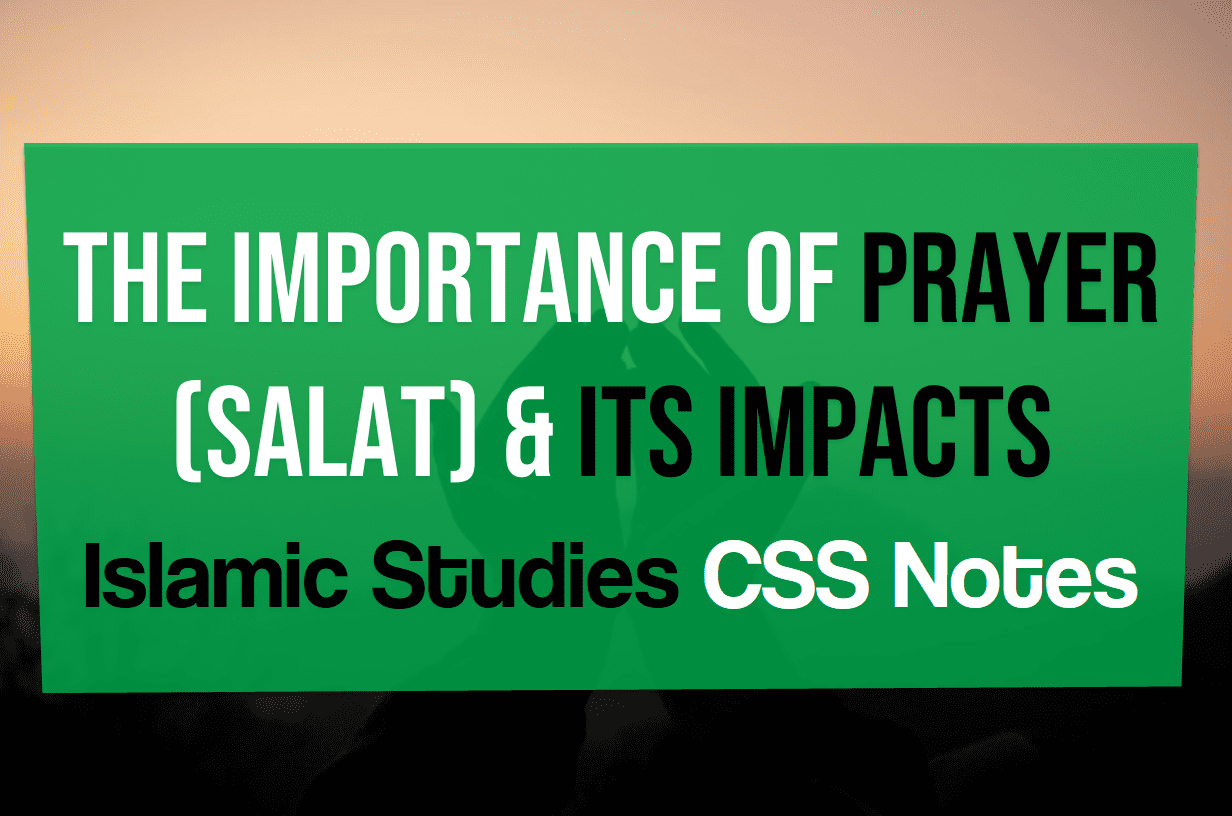
The Importance of Prayer Salat and its impacts.
1.Introduction:
The Importance of Prayer Salat and its impacts. The Salat is obligatory on mankind. The Quran quotes the farziat (obligation) of Salat in these words. ―The Salat at its fixed (Five) times is enjoined on the believers. There are numerous references of Salat and Zakat in the Quran. Salat inculcates Islamic values in man. The Salataims to inculcate all the noble qualities of Islam in a Namazi: It aims at elevating him to the rank of Miraj. As he has to take the message of Islam to all the corners of the whole world, for dispelling the darkness of ignorance, the Namazi has to acquire and exercise his Godly attributes to the maximum degree. Having submitting himself to the will of Allah, having shunned the Shirk, having sought to lead Sirat-al- Mustaqeem (straight path of Islam), Salat develops in him the qualities of Jihad, maintaining cordial relations with his close relatives, orphans, poor people, and others, by spending his wealth among them,
giving out Zakat, and performing other Islamic rituals. He has to develop the quality of Sabar (firmness) in times of war and adverse circumstances. The words of the Quran as contained in 2:177 will express Allah‘s Will to command the Namazi to rise to the maximum limits of times of war and adversity. The Ayat says: ―It is not righteousness that you turn your faces towards the East or West, but righteousness is of him who believes in Allah, the Last Day, the Angels, the Books, and the Prophets; and spends of his money for love of Him, on the relatives and the orphans and the needy, the way farer, the baggers, and for ransoming of captives, and who establishes Salat and pays Zakat, and those who fulfill their promises which they have made and the patient in affections and the steadfast in time of war, it is these people who in poverty have proved truthfull and it is these who are the God fearing.‖ (2:177)
2.Importance of Prayer in Quran and Hadith:
i)Importance of Prayer in Quran:
The obligation of Salat is stressed in the Quran at various places.
- The Quran says: ―Establish regular Salats at the declining of the sun to the paling of sun, on the darkness of the night (which includes four Salats of Zuhr, Asr, Maghrib and Isha) and the Salat of Fajar, verily the recitation of the Holy Quran at; the Salat of Fajr is borne witness (by the angels).‖ The Salat of Fajr is singled out and emphasized because of its special importance and because of the sanctity of the hour. Hadith relates that the Guardian angels who are reveled dawn bear special testimony to the observer of the morning Salat.
- According to the Holy Quran: ―And be steadfast in prayer, pay regular charity, and bow down your heads with those who bow down.‖
- Again the Quran stresses the obligation of Salat on mankind. It commands mankind to perform regularly all the Salats and especially the Salat of Asr. The Quran says: ―Apply perpetually to the performance of all the Salats at their proper times, and particularly the Salat of Asr, and Stand before Allah in a humble manner. And if you are in a state of fear (within the approach of an enemy in war), then offer your Salat on foot or riding (in whatever position and posture that may be possible for you), but when you are safe, remember Allah as He has taught you, which you did not know.
- According to the Holy Quran:―Seek assistance through patience and Prayer‖ (Quran).
ii)Importance of Prayer in Hadith:
- The Hadith also lays great stress on regular Prayers.
It in an Expressed command the Prophet (PBUH) says: :He who deliberately neglects an obligatory prayer, Allah is absolved of him.‖ (Ahmad) - In another Hadith: ―Verily, it is prayer which separates man and disbelief to polytheism.‖
- The Prophet Mohammad (PBUH) said: ―Prayer is Miraj for the Believers.
- In other hadith it is said, that prayer is the key of heaven.
3.Rules for performance of Prayer:
In view of great importance of prayer, it is absolutely necessary that it is performed properly in the way it was performed and taught by Prophet. It must be performed earnestly and humbly.
Some of the important rules of prayer are given below.
1. Prayer must be performed with ease, comfort and calmness.
2. There must not be any movements of hands, head, ayes or legs other than necessary in the performance of Ruku, Sujud, etc.
3. Every part of a prayer must be performed properly and quietly.
4. One part of a prayer must be completed before the next part is initiated.
5. Deliberate mediation on unrelated thoughts should be avoided.
6. One should constantly endeavor to understand the meaning of the words one is reciting Prayer.
7. Every prayer must be performed at its proper time as stated in the Holy Quran: ―Prayer indeed has been enjoined on believers at fixed times.
4.Impacts of prayer on Human life and society:
Prayer teaches rules of cleanness and spiritual purification. It encourages punctuality, self-discipline, self-control- and cleanliness. It develops high moral qualities of patience, perseverance, honesty and truthfulness. It makes people God fearing and pious. It helps people to build strong characters. It brings them closer to God. Socially, it teaches equality, fraternity, tolerance, unity and co-operation.
i)Spiritual Impacts:
- Physical cleanliness:
- Taharat (Purification)
- Closeness to God:
- Purification of Soul:
- Patience and perseverance:
- Consciousness of being slave:
- Sense of Duty:
- Practice of Obedience
- Creating fear of God:
- Awareness of Divine Law:
ii)Moral Impacts:
- Punctuality:
- Sense of duty and Responsibility:
- Training in Self-Discipline:
- Character-Building :
- Self-Control:
- Humility:
iii)Social Impacts:
- Social Organization and Social Discipline:
- Mosques as Community Centers:
- Mutual Help and Co-operation:
- Equality and Brotherhood:
- Training in Jihad (Holy War):
- Respect for the Rights of Others:
- Tolerance:
- Unity:
Read More:
Join Us at whatsapp: https://www.englishberg.com/group-study-whatsapp

